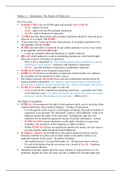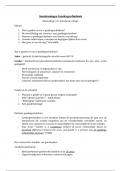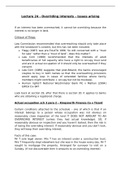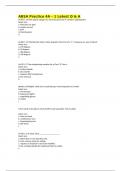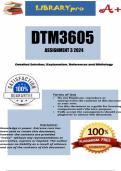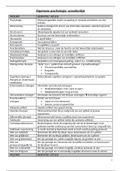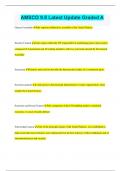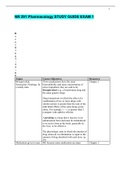Summary
Summary Media Law Notes - The Themes of Media Law
- Course
- Institution
Includes: - Key Provisions - Importance of Media Freedom - The Rights of Journalists - The Special Regulation of the Broadcasting Media - Media Freedom and Freedom of Expression - The Internet and Media Regulation - Prior Restraint - Censorship and Prior Restraints - The influence of the ECHR
[Show more]
